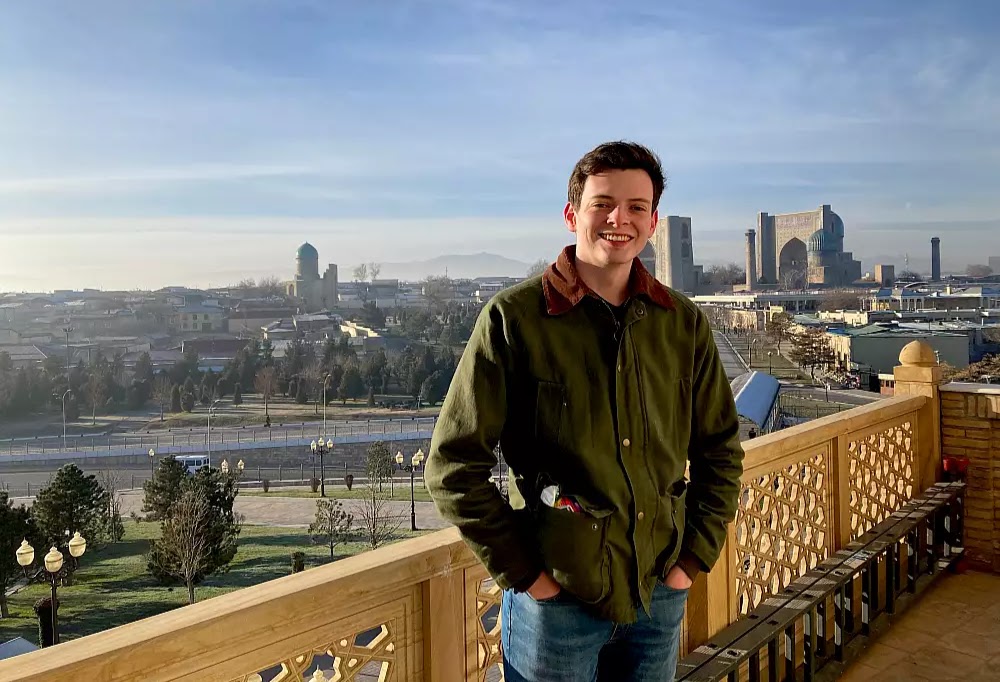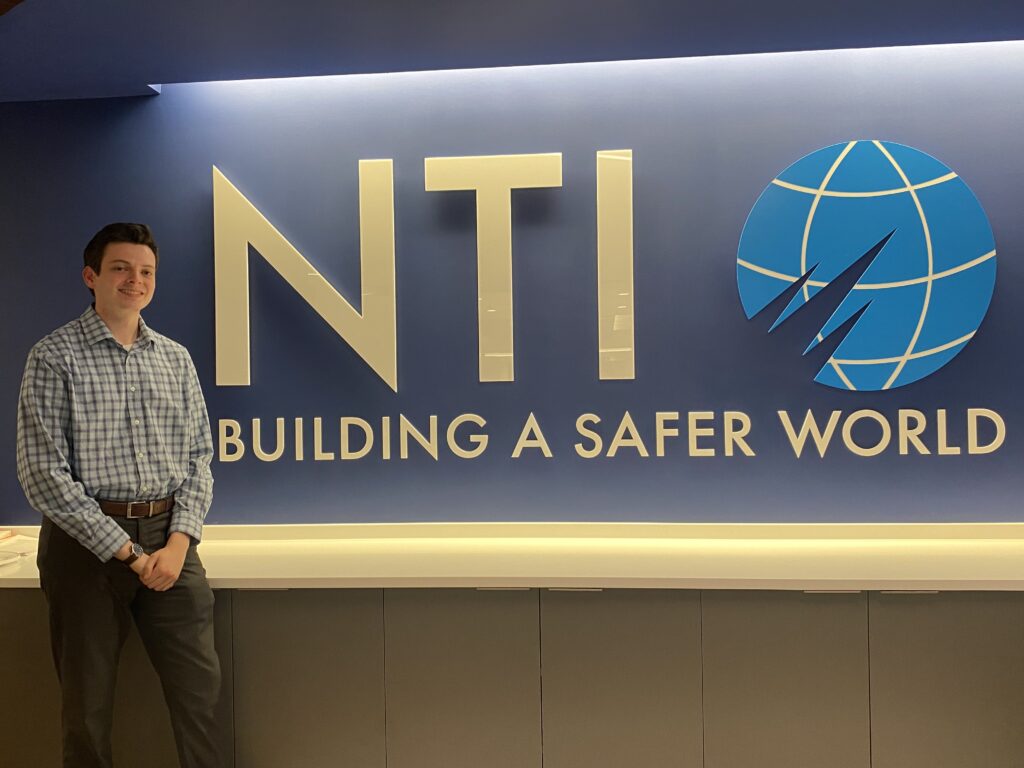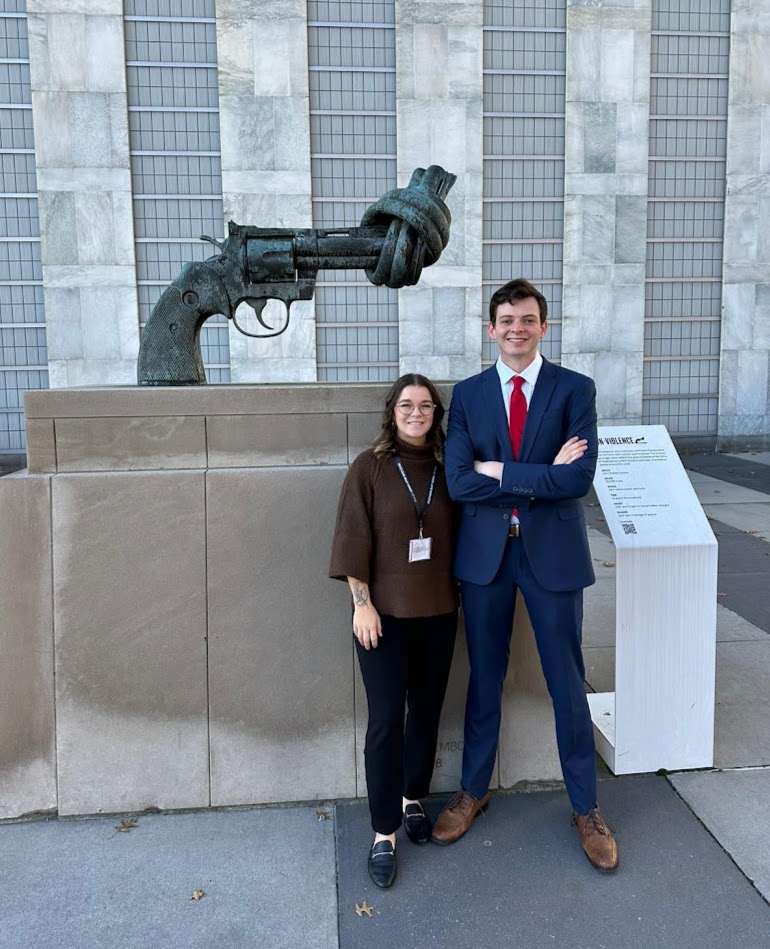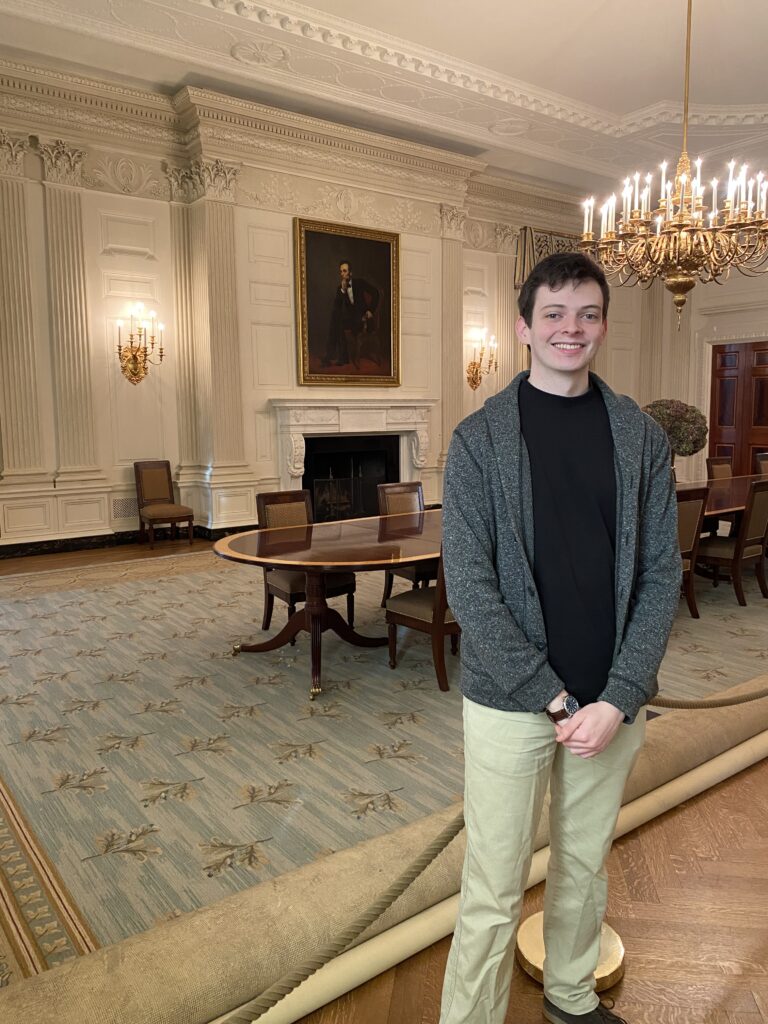The Evolution of an ‘International Studies-ist’
Kyle Tucker January 18, 2024
The interaction usually went the same way. When I told family friends in my Midwestern town that I planned to major in international studies in college, I often got sympathetic looks. They’d clap me on the back, wish me luck, and ask well-meaningly, “What are you going to do with that?” Where I grew up, people’s degrees usually matched their professions. Nursing led to a career as a nurse, and business led to life as a businessman. But what about international studies? An international studies-ist? It just doesn’t have the same ring. I’d mumble something about working for the government, and they’d usually shrug and move on.
Meanwhile, I grappled with the same question: What am I going to do with that? Initially, I thought teaching was the only path to express my interest in the social sciences. However, the versatility of international studies pushed me toward history and politics. That passing interest evolved into a passion for peace and security issues, particularly the threat of nuclear weapons. A Boren Scholarship later enabled a year abroad in Kazakhstan, where I witnessed the aftermath of nuclear testing on the people there. While completing an internship in Kazakhstan’s capital city, Almaty, I realized the immense efforts that went into addressing the legacy of nuclear weapons and other military infrastructure in that country. All the while, I could not understand why more people weren’t talking about a problem capable of wiping out human civilization.

A major personal inspiration was former Indiana Senator Richard Lugar, the partial namesake of the international affairs school at Indiana University. A fierce advocate for bipartisanship and nuclear risk reduction, Lugar saw nuclear weapons as a real threat, not just an abstract issue. Following the breakup of the Soviet Union, he worked to reduce the spread of nuclear weapons and materials around the world. Inspired by this commitment and by my time in Kazakhstan, I decided to follow in Senator Lugar’s stead, aiming to manage dangerous technology.
As Senator Lugar’s Cold War-era generation fades away, fresh experts are needed to tackle critical issues. The Scoville Peace Fellowship provided me an opportunity to break into the peace and security field and learn from experts in Washington, DC. Working with the Nuclear Threat Initiative, I am drafting memos and conducting research to support the mission of their Nuclear Materials Security Team. Our mission is to reduce nuclear risks by emphasizing the paramount role of nonproliferation in the civilian nuclear industry. Due to recent renewed interest in nuclear energy, it’s crucial to advise embarking countries on foundational nuclear security principles.

Arriving in DC without many professional connections, the experience initially bewildered me. Acronyms and jargon flew left and right in the workplace, networking unfolded over countless cups of coffee, and the most important conversations at any event happened on the sidelines. Because so many opportunities in this space are within the DC area, it can be difficult to be aware of them without living here and talking to people directly. Engaging with new friends, colleagues, and mentors, I discovered a myriad of fascinating potential professional opportunities. Gaining greater context of the possibilities in academia, government, nonprofits, and international organizations is crucial in charting my path forward. This would have been much more difficult to achieve without the support of the Scoville Fellowship.

My most valued experience so far as a Scoville Fellow took me to the United Nations Headquarters in New York City. In November, I attended the Second Meeting of States Parties to the Treaty on the Prohibition of Nuclear Weapons. This UN treaty declares nuclear weapons illegal under international law; however, no nuclear weapon states are currently parties to it. Nevertheless, the treaty sets an important precedent, stigmatizing the reliance on weapons of mass destruction for national security. At the conference, I met hibakusha—survivors of the atomic bombings in Hiroshima and Nagasaki—plus survivors of nuclear testing in countries ranging from Kazakhstan to Kiribati.
Listening to those most directly affected by nuclear weapons is critical to preventing additional tragedies. As nuclear tensions rise with the modernization of global arsenals and escalating geopolitical conflicts, it’s vital to remember the lessons of the Cold War and the risk reduction measures adopted in its aftermath. When I go to events in DC as a Scoville Fellow, the considerable number of older and younger attendees is striking. There is a noticeable absence of middle-aged participants. I am reminded of how nuclear problems were underestimated over the past several decades after the Cold War. When an issue appears to be “solved,” attention wanes. We cannot permit this status quo to continue.
Fortunately, a new generation is becoming more engaged with nuclear issues and existential threats. From climate change to nuclear weapons to artificial intelligence, my Scoville Fellowship has given me the perspective to see how all these peace and security issues are interdependent. It also helped me receive a Marshall Scholarship, which will allow me to continue studying security issues in a graduate degree program in the United Kingdom.

We stand at a turning point for many of these existential issues, where decisions will profoundly affect humanity for decades, if not centuries, to come. It is a daunting yet exhilarating time that has only intensified my desire to explore these international problems. Over the course of my studies, I’ve come to recognize how peace and security topics interact and how institutions drive policy changes. It’s now been six years since I committed to international studies as my undergraduate major and set off down a path that has taken me to wonderfully unique places: Washington, D.C., Kazakhstan, and even the United Nations. As I prepare to head to London this fall, I still reflect on that moment. Perhaps, in the end, I did become an “international studies-ist” after all.
Kyle Tucker is a Fall 2023 Scoville Fellow with the Nuclear Threat Initiative.
